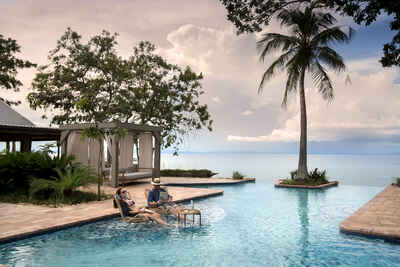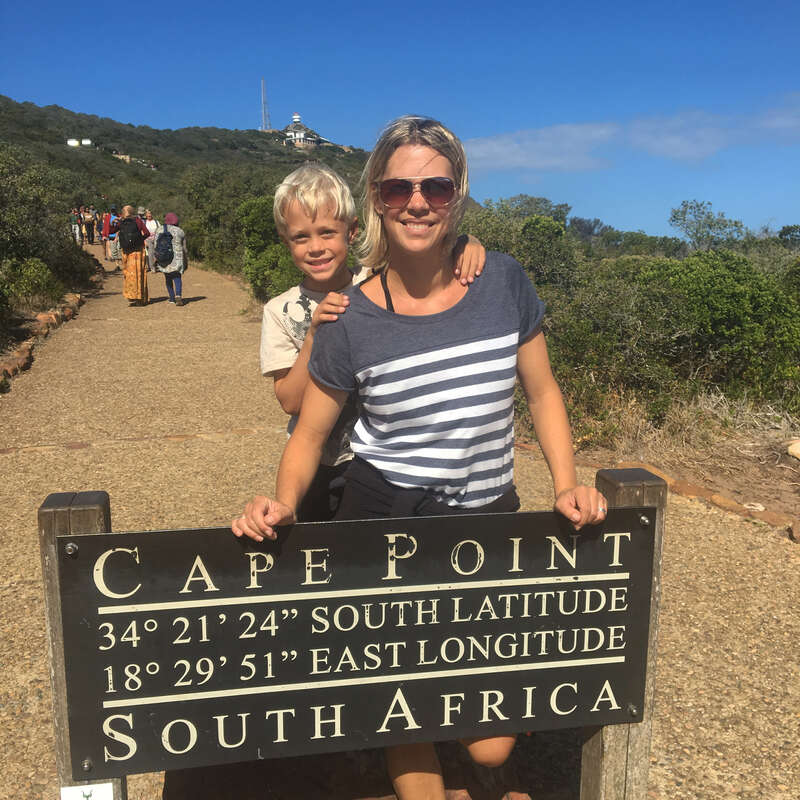About Bumi Hills Safari Lodge
Set on top of a high hill with views that stretch out across the Zambezi Escarpment in one direction and ...
... the vast expanse of Lake Kariba in the other, Bumi Hills Safari Lodge has been around, in one form or another, for many years. Extensive renovations in 2009 and a more recent refurbishment in early 2018 means that the lodge now provides probably the most luxurious and relaxing location on the Zimbabwean side of Lake Kariba.
One of the more solid and substantial safari lodges in Zimbabwe, Bumi Hills feels more smart hotel than bushcamp: perhaps it’s the stone construction and air conditioning that serves as something as a barrier between guests and the bush. Yet it’s difficult not to be lured in by the views of Lake Kariba, the superb pool and the opportunity to explore the lake by boat, all of which make it very appealing just to relax and enjoy the lake. As such we’d recommend Bumi as a place to break up a safari or perhaps as a place to recover from, or prepare for, a long-haul flight – although with a range of flexible activities, it won't feel at all out of place in a safari itinerary.
Our view
One of the more solid and substantial safari lodges in Zimbabwe, Bumi Hills feels more smart hotel than bushcamp: perhaps it’s the stone construction and air conditioning that serves as something as a barrier between guests and the bush. Yet it’s difficult not to be lured in by the views of Lake Kariba, the superb pool and the opportunity to explore the lake by boat, all of which make it very appealing just to relax and enjoy the lake. As such we’d recommend Bumi as a place to break up a safari or perhaps as a place to recover from, or prepare for, a long-haul flight – although with a range of flexible activities, it won't feel at all out of place in a safari itinerary.
Accommodation
10 suites, 1 villa
Children
Best for aged 12+
Open
All year
Activities

4WD Safari

Birdwatching

Boat trip

Fishing

Guided walking safari

Private activities
Traveller reviews of Bumi Hills Safari Lodge
4 real, un-edited reviews from Expert Africa's travellers.
Arrived 16 Sep 2022, 3 nights
"The star of the show"
Overall rating: Excellent
Arrived 25 Mar 2013, 2 nights
"Part of the family at Bumi Hills"
Overall rating: Excellent
Arrived 8 Oct 2012, 2 nights
"Bumi Hills Safari Lodge review"
Overall rating: Good
Arrived 21 Sep 2011, 2 nights
"Return to Bumi"
Overall rating: Excellent
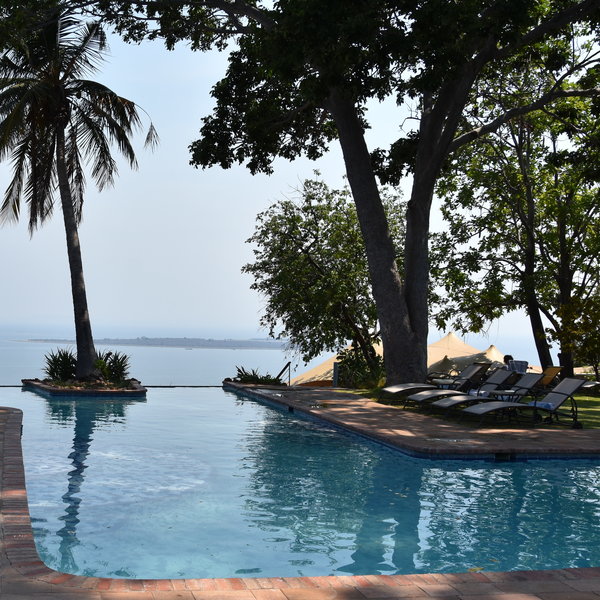
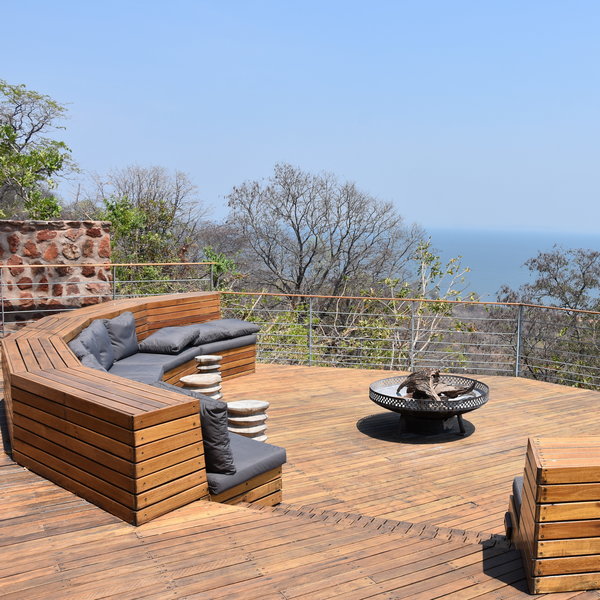
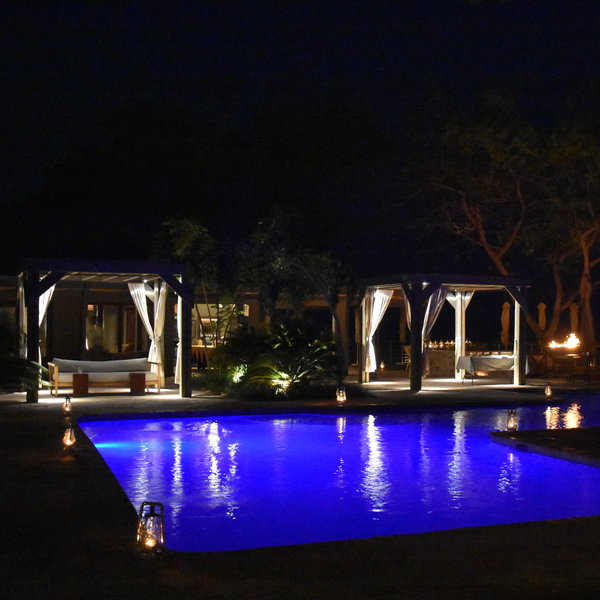
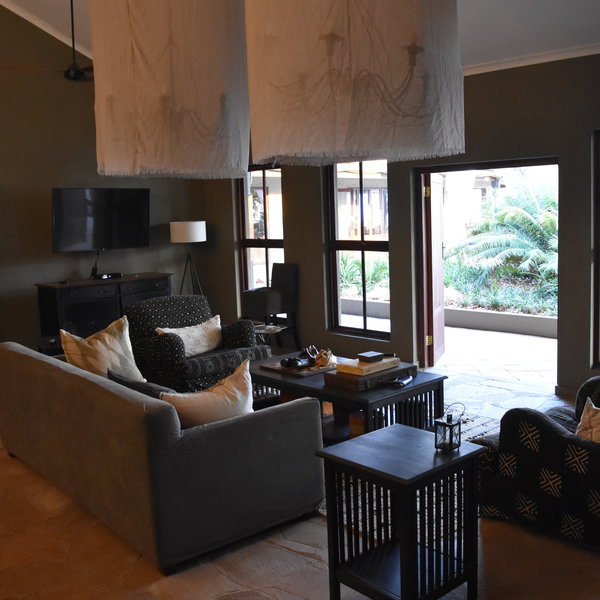
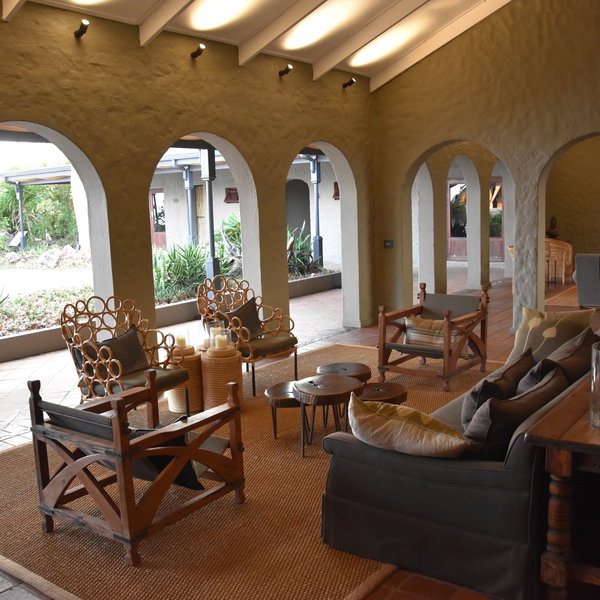
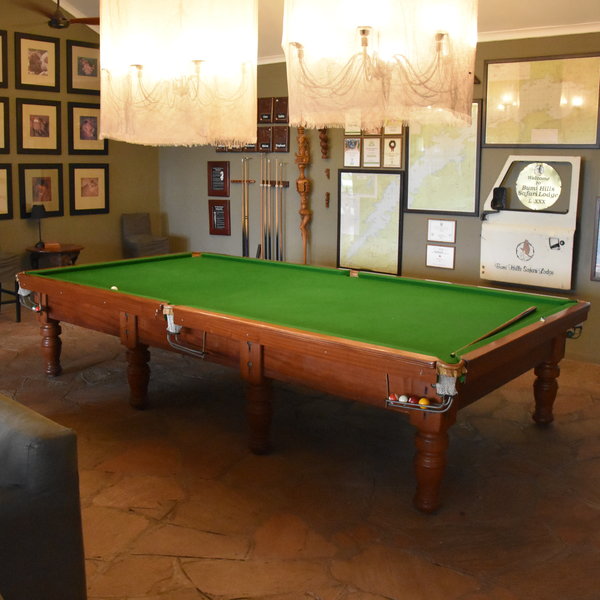
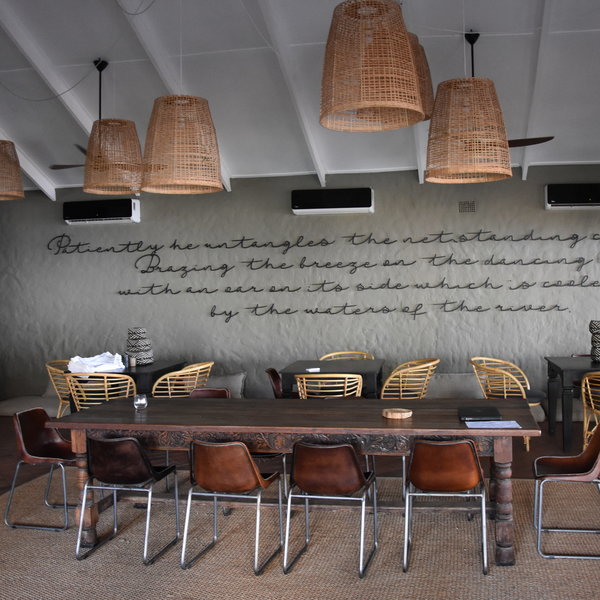
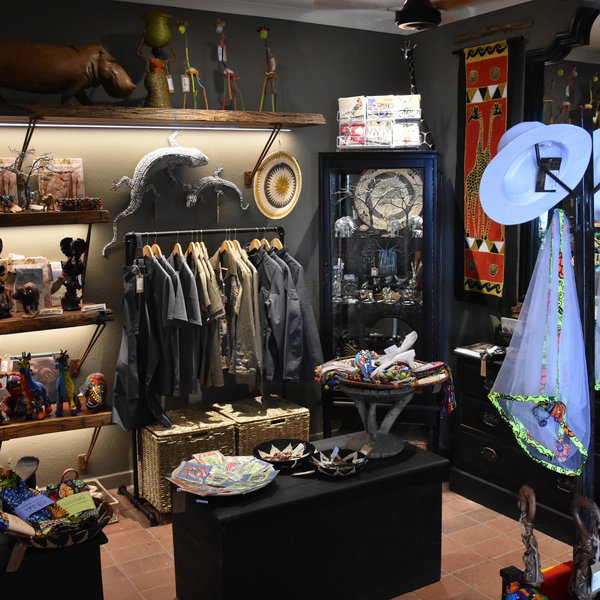
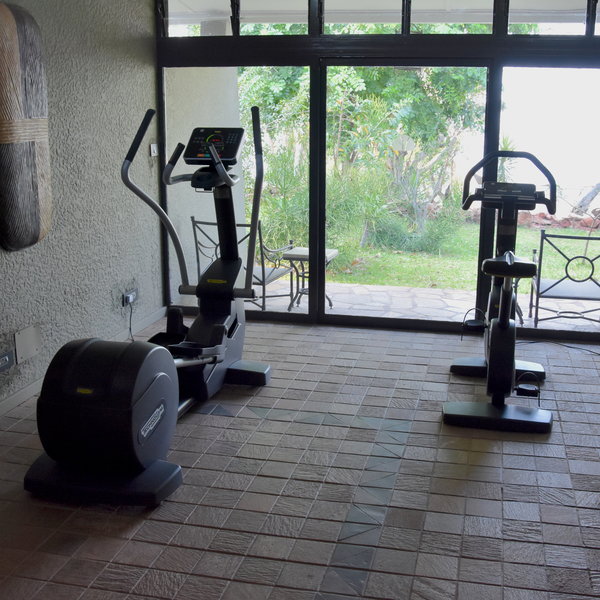
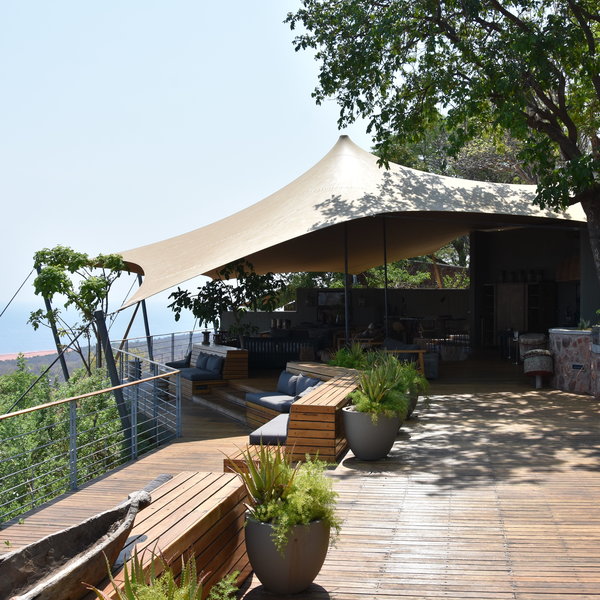
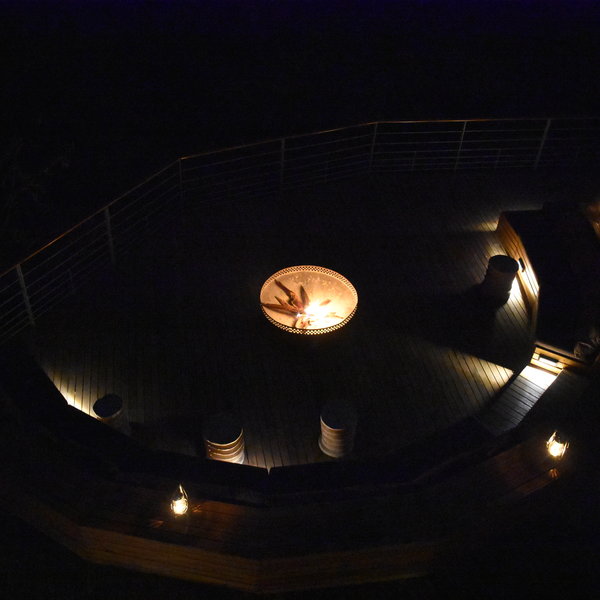
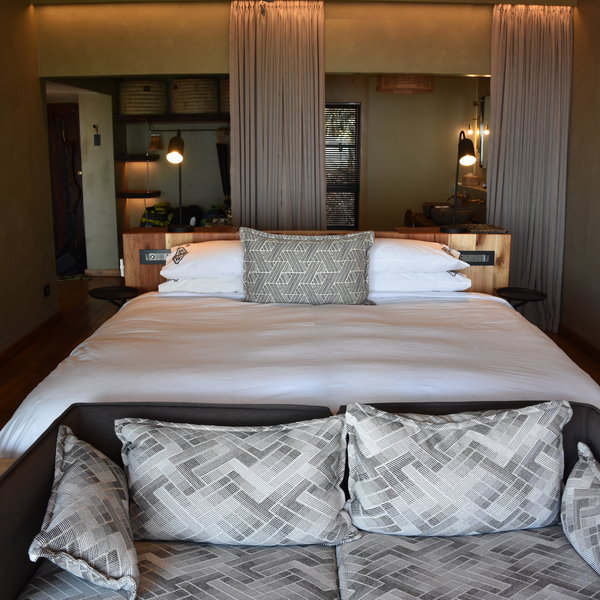
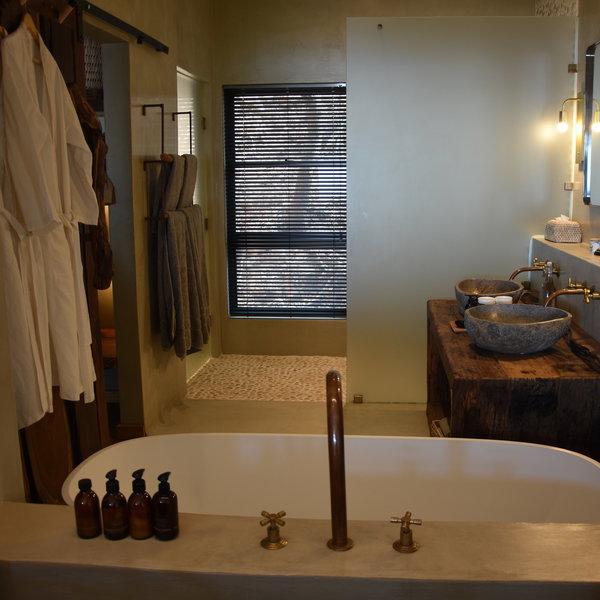
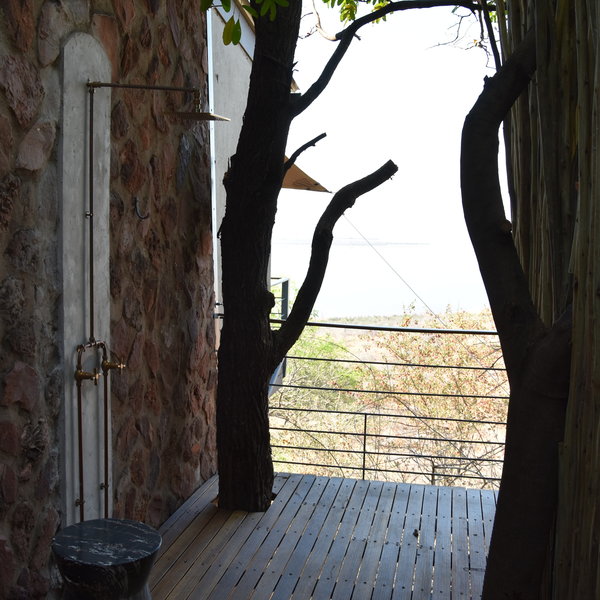
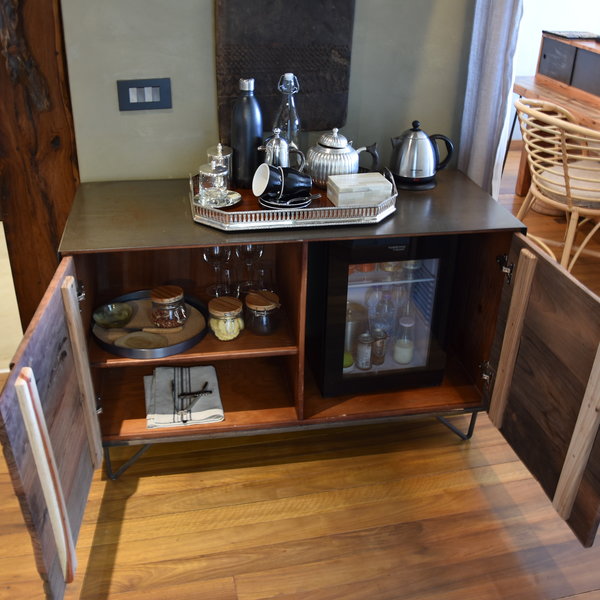
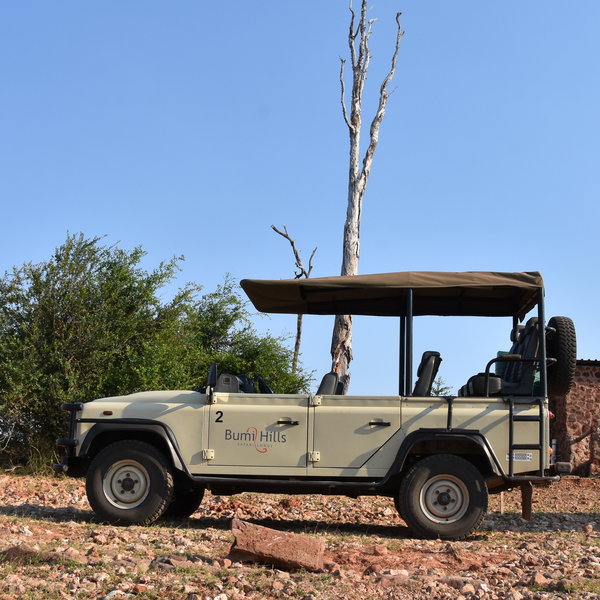
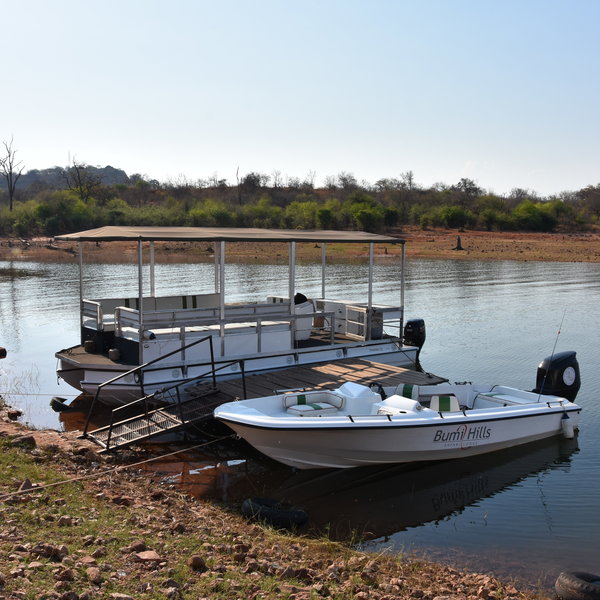
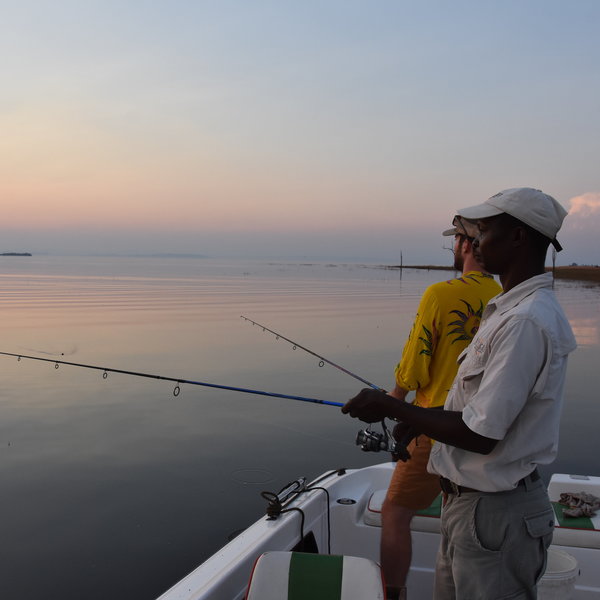
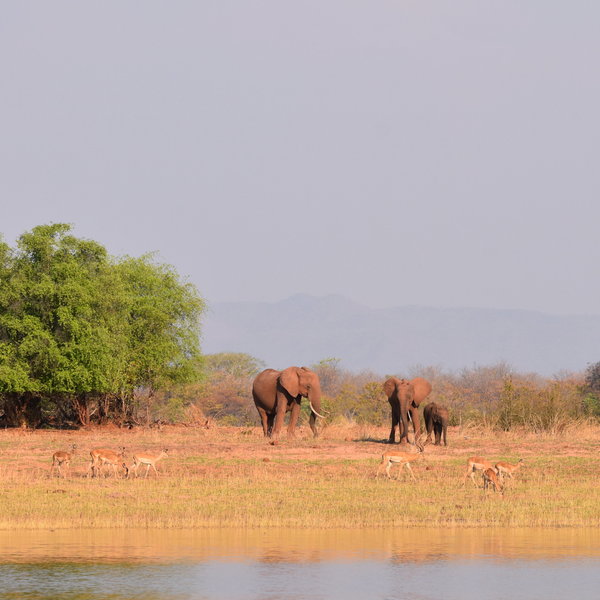
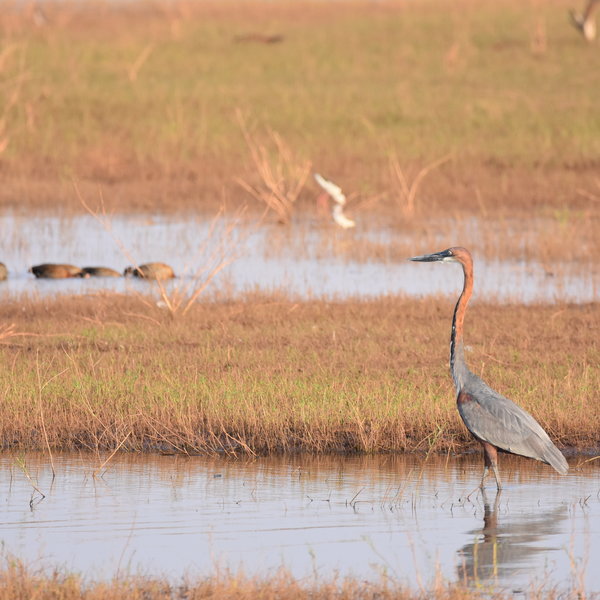
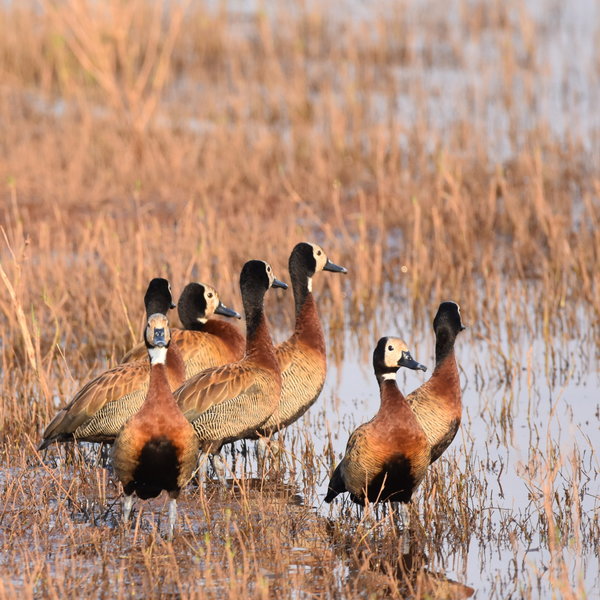
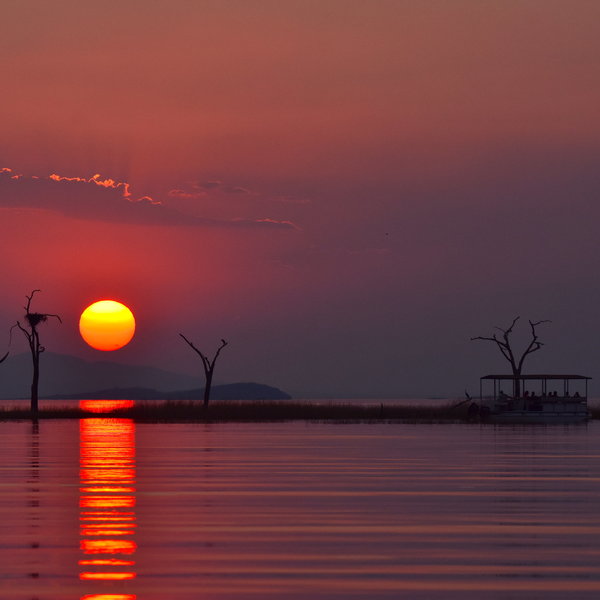
Expert Africa's gallery
When we travel we take lots of photos ourselves to give you a real and un-edited view of the safaris. See our 22 pictures of Bumi Hills Safari Lodge to get the candid view.
View gallerySafaris visiting Bumi Hills Safari Lodge
Just ideas, we'll always tailor-make a trip for you
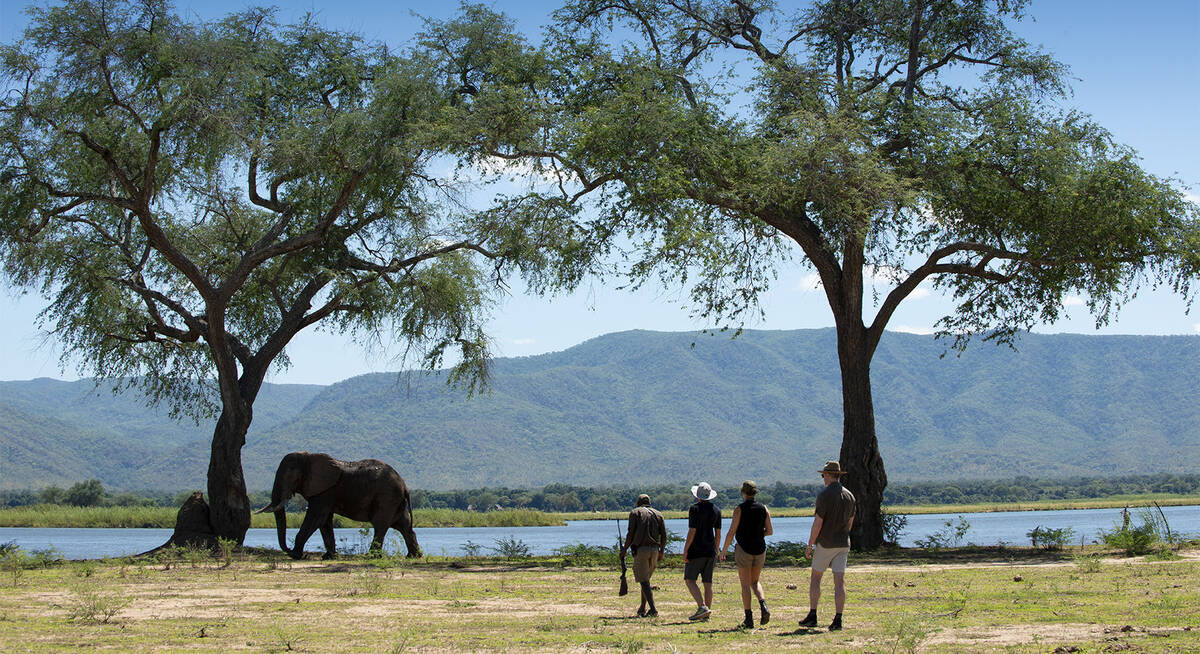
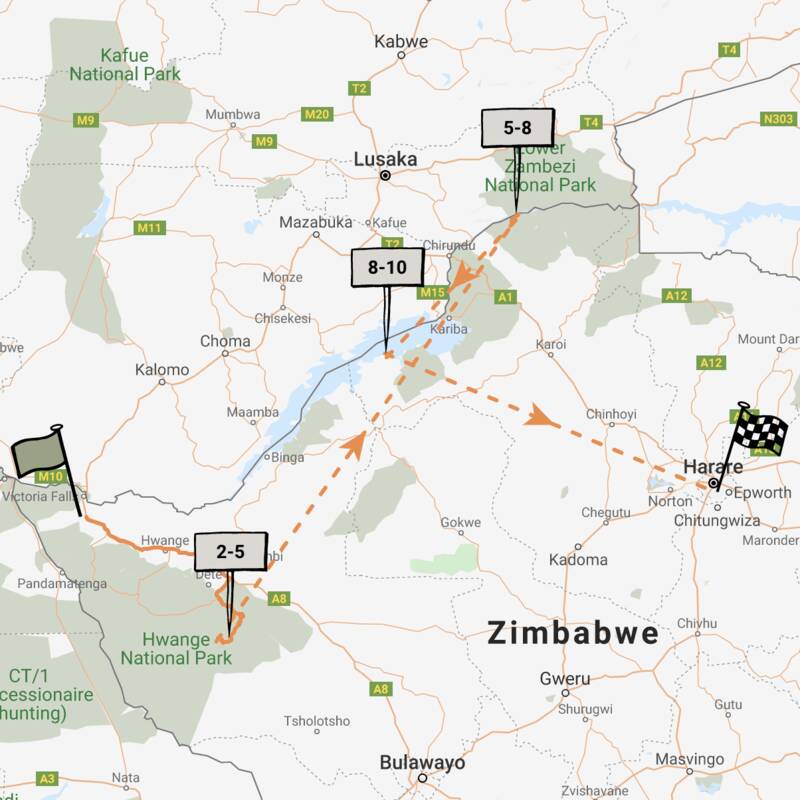
Grysbok Safari
9 days • 3 locations • 1 country
VICTORIA FALLS AIRPORT TO HARARE AIRPORT
Discover three of Zimbabwe’s iconic destinations in style, flying between Hwange, Mana Pools and Lake Kariba on this varied safari adventure staying at authentic yet luxurious camps.
Visiting Hwange, Matusadona and 1 other area
US$11,070 - US$16,110 per person
Bumi Hills Safari Lodge: Our full report
Set on top of a high hill with views that stretch out across the Zambezi Escarpment in one direction and ...
... the vast expanse of Lake Kariba in the other, Bumi Hills Safari Lodge has been around, in one form or another, for many years. Extensive renovations in 2009 and a more recent refurbishment in early 2018 means that the lodge now provides probably the most luxurious and relaxing location on the Zimbabwean side of Lake Kariba.
The lodge sits within its own private game area, which extends below the lodge and includes a long stretch of lakeshore, close to Matusadona National Park.
Spread out along the hillside, the 10 suites are semi-open plan, with a low partition wall separating the en-suite from the bedroom. Don’t worry, though: there are curtains that can be drawn for those who like a little more privacy when bathing or showering, and the toilet is in a separate cubicle. There is also a second, outside shower, with lake views but still quite private.
As well as king-size or twin beds curtained by a mosquito net, the bedrooms boast a sofa and a writing desk. Sliding doors open up onto a private covered veranda, with a couple of chairs from which to soak in the views. Neutral tones blended with plenty of natural wood create a clean, modern feel and – unusually for a lodge in Zimbabwe – Bumi Hills also has air conditioning.
Ideal for families or couples travelling together is the relatively new two-bedroom Baobab Villa, which comes with a private butler, safari guide and vehicle. The villa was occupied during our visit in October 2018 so we couldn’t look round, but we understand that it is self-contained and has its own private bar, living room and both indoor and outdoor dining areas.
Not surprisingly, the communal area at Bumi Hills is built to make the most of the views across Lake Kariba. The buildings form a U-shape around a spectacular infinity pool fringed by sunloungers, daybeds, palm trees and flowers. Watch out for the vervet monkeys here, though – they have kleptomaniac tendencies!
A real highlight at Bumi is lingering over meals on the deck overlooking the lake, but the inside dining area, which forms one side of the ‘U’ is well set up for the weather with both air conditioning and a fire.
To the other side is a curio shop, a small gym and a spa room (treatments at extra cost).
Set back from the view is a large indoor lounge with WiFi, and an adjacent games room with a dartboard, TV and full-size antique slate snooker table that is so heavy that it had to remain in place during the extensive refurbishments in 2009!
Step down from the pool and dining deck and you’ll come to a firepit, the perfect spot for watching the kapenta fishing boats bobbing around on the lake at night, lit up like fireflies. Another decking area features both a wood-fired pizza oven where lunch is occasionally served, and a monkey-proof, self-service bar – although during our visit the staff were always more than happy to help.
While the Matusadona area isn’t as famous for wildlife as some other areas of Zimbabwe and its game densities are not as high, Bumi Hills offers a range of wildlife-watching activities. Do note, however, that their land-based activities, which include game drives and walks conducted by professional guides, do not enter the park, but rather stay on Bumi’s private game area. Our game-drive sightings were few and far between, but we did spot a lone lioness and saw plenty of the area’s renowned elephant population.
More flexible, and by far the better option, are water activities on Lake Kariba. Game viewing and birdwatching by boat can be enjoyed off the private game area, or off the shores of Matusadona National Park, and late afternoon sundowner cruises afford a spectacular photographic opportunity.
Despite limited experience, we had a really good afternoon fishing with a professional guide, and were even lucky enough to try our catch as an appetizer for dinner.
No matter the activity you choose, we found the team here very flexible and accommodating, further enhancing the relaxed atmosphere of the lodge.
Activities
4WD Safari
Birdwatching
Boat trip
Fishing
Guided walking safari
Private activities
Families & children
- Attitude towards children
- Bumi Hills Safari Lodge welcomes children of all ages.
- Property’s age restrictions
- None
- Special activities & services
- African Bush Camps offer a kids’ club with nannies and special activities for younger children. NB The “nannies” may not be trained childcare professionals but rather staff members with experience of their own children.
- Equipment
- Highchairs, cots and additional beds can be provided for younger children on request. The villa is a perfect choice with flexible activities and a dedicated team throughout your stay. Alternatively, suites 1 and 2 have an interleading door.
- Generally recommended for children
- While the villa would be a great option for families, the main lodge has a distinctly adult feel and we do not recommend it for younger children.
- Notes
- There are numerous drop offs and an unfenced, unguarded pool, so children should be supervised by their parents at all times.
Food & drink
- Usual board basis
- Full Board & Activities
- Food quality
- As you might expect from a luxurious lodge, the food at Bumi Hills was excellent on our last visit, in October 2018. We understand that with advanced notice most dietary requirements can be catered for.
Breakfast takes the ubiquitous form of a buffet of muffins, bread, cereals, fruit, yoghurt and juice, with sausage, bacon, omelettes and other egg dishes cooked to order.
Lunch is usually different each day. We had the choice of a hearty chicken salad, a selection of toasted sandwiches served with French fries and green salad, or creamed spinach pasta. These may sound small, but a light lunch was most welcome in the heat of the day and was more than sufficient.
On our first night all the guests were treated to a special dinner – we wouldn’t want to ruin any surprise, but suffice to say it was a wonderful evening. On our second night we enjoyed a grilled halloumi salad to start. This was followed by a novel pick-your-own stir-fry buffet where we chose the ingredients to be cooked in front of us. This was certainly a fresh take on safari food but it did result in a fairly long queue and a slightly disjointed meal, so perhaps needs some fine tuning. Bringing us back together to round off the meal was a delightful lemon cheesecake. - Dining style
- Individual Tables
- Dining locations
- Indoor and Outdoor Dining
- Further dining info, including room service
- Available on Request
- Drinks included
- Included except for premium wines and spirits.
Water is pumped from the lake and treated before use at the lodge, so is considered safe to drink.
Our travellers’ wildlife sightings from Bumi Hills Safari Lodge
Since mid-2018, many of our travellers who stayed at Bumi Hills Safari Lodge have kindly recorded their wildlife sightings and shared them with us. The results are below. Click an animal to see more, and here to see more on our methodology.

100% success

100% success

100% success

100% success

100% success

0% success

0% success

0% success

0% success

0% success

0% success

0% success

0% success

0% success
Getting there
- Location
- Matusadona National Park, Zimbabwe
- Ideal length of stay
- We'd recommend Bumi Hills for at least a couple of nights although three would be better. It's a fantastic place to relax and unwind, either at the beginning or the end of a safari.
- Directions
- Bumi Hills has its own airstrip making it easily accessible by air from Kariba, Victoria Falls, Mana Pools and Harare.
- Accessible by
- Fly-and-Transfer
Special interests
- Honeymoons
- The view, the spa, the food and zipping across the lake waters for sundowners make Bumi Hills Safari Lodge an unforgettable stop with a splash of luxury on your Zimbabwean Honeymoon.
- See ideas for Honeymoons in Zimbabwe
- Wellbeing retreats
- Built atop a hill with picturesque views of Lake Kariba, Bumi Hills Safari Lodge boasts an impressive infinity pool, gym and spa. It’s a great place to slow down, relax and indulge yourself on a Zimbabwe safari.
- See ideas for Wellbeing retreats in Zimbabwe
- Private safari camps & lodges
- The Baobab Villa at Bumi Hills is a 2-bedroom private villa, complete with its own living room, bar and indoor and outdoor dining decks. This is a perfect option for those wanting some privacy on their Zimbabwean safari.
- See ideas for Private safari camps & lodges in Zimbabwe
- Luxury safaris
- Huge rooms, plenty of private space, an impressive infinity pool, spectacular views, a gym and a spa make Bumi Hills Safari Lodge fantastic option if you're looking for a bit off luxury in Zimbabwe.
- See ideas for Luxury safaris in Zimbabwe
Sustainability
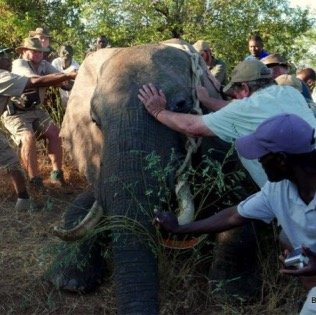
Actively fighting against elephant poaching
Located in a game-rich area along the largest man-made lake, Bumi Hills Safari Lodge allows guests to sustainably enjoy the sights of elephants, hippos and many other animals in their natural habitat. Conscious about the dangers of human-wildlife conflict in the region, the lodge’s positive impact can be mostly seen in its anti-poaching objective.
With elephant numbers down 75% in the area as a result of poaching, in 2009 the lodge has established the Bumi Hills Anti-Poaching Unit with a clear motto: Rehabilitate – Protect – Preserve. Using a mix of collaboration, knowledge and technology, anti-poaching land patrols cover on average 2,100km every month. They look for and regulate any sign of illegal activities such as commercial snaring, subsistence hunting and prohibited harvesting of timber. One example of the foundation’s contribution is Ben the elephant, a victim of a failed poaching attempt. The staff at Bumi Hills arranged for a wildlife veterinarian to fly in and fitted Ben with a VHF tracking collar to monitor him closely during the follow up treatment phase. Guests can too help the Bumi Hill anti-poaching foundation accomplish its mission. Working with the experienced guides, tourists can safely help them spot snares and other signs of poacher activities.
The foundation has been successful in substantially reducing the number of poached elephants, allowing the species to recover. Numbers stand proof for this. 17,231 recorded wire snares have been removed since 2009 and 166 elephant carcasses have been investigated since 2013.
See more great sustainability projects in Zimbabwe
Communications
- Power supply notes
- 220 volt electricity is available by generator 24 hours a day.There is a back-up generator.
- Communications
- Bumi is solar powered during the day with a generator providing additional power at peak times and in the evenings. Batteries can thus be charged in your suites day and night.
- TV & radio
- There is a TV in the main area.
- Water supply
- Other
- Water supply notes
- Water is pumped from the lake and treated before use at the lodge, so is considered safe to drink.
All the rooms have flush toilets and hot and cold running water.
Health & safety
- Malarial protection recommended
- Yes
- Medical care
- There is a first-aid kit at the lodge and some of the staff are trained in first aid. The nearest doctor is in Kariba, which is 20 minutes away by air.
- Dangerous animals
- High Risk
- Security measures
- Security guards patrol the property 24 hours a day, primarily to keep an eye out for wildlife.
- Fire safety
- There are fire extinguishers outside each suite and in the main areas.
Useful info
- Disabled access
- On Request
- Laundry facilities
- Bumi Hills Safari Lodge includes a daily laundry service (weather permitting) in the cost.
- Money
- There is a digital safe in each suite.
- Accepted payment on location
- Visa and Mastercard cards are accepted as well as cash in US dollars.
Plan and book your trip with Expert Africa
All of our trips are tailor-made, so we'll always adapt them to suit you. Talk to an Expert and let us plan and arrange your perfect trip.

Talk to an Expert
Call or email us now! We’ll match you with the Specialist in our team who is best suited to help you. Then together we can start planning your trip.

Set up your itinerary
Based on our experience and your ideas, your specialist will create a detailed, costed itinerary. We’ll refine it together, until we have a trip that you’re perfectly happy with.

Prepare for your trip
The same Specialist will make the seamless arrangements for your trip, send you detailed travel documents, and be available to answer any questions before you depart.

Travel with peace of mind
After you set off, you’ll be cared for by our partners in Africa, most of whom have worked with Expert Africa for decades. And if you ever need us urgently, we’re available 24/7.

When you return
We love to learn about your trip, and so will always be grateful if you’ve the time to give feedback to your Specialist when you return.
Bumi Hills Safari Lodge's location
Look closer at the environment and surroundings of Bumi Hills Safari Lodge.
Other lodges in Matusadona National Park
Alternative places to stay in this same area.
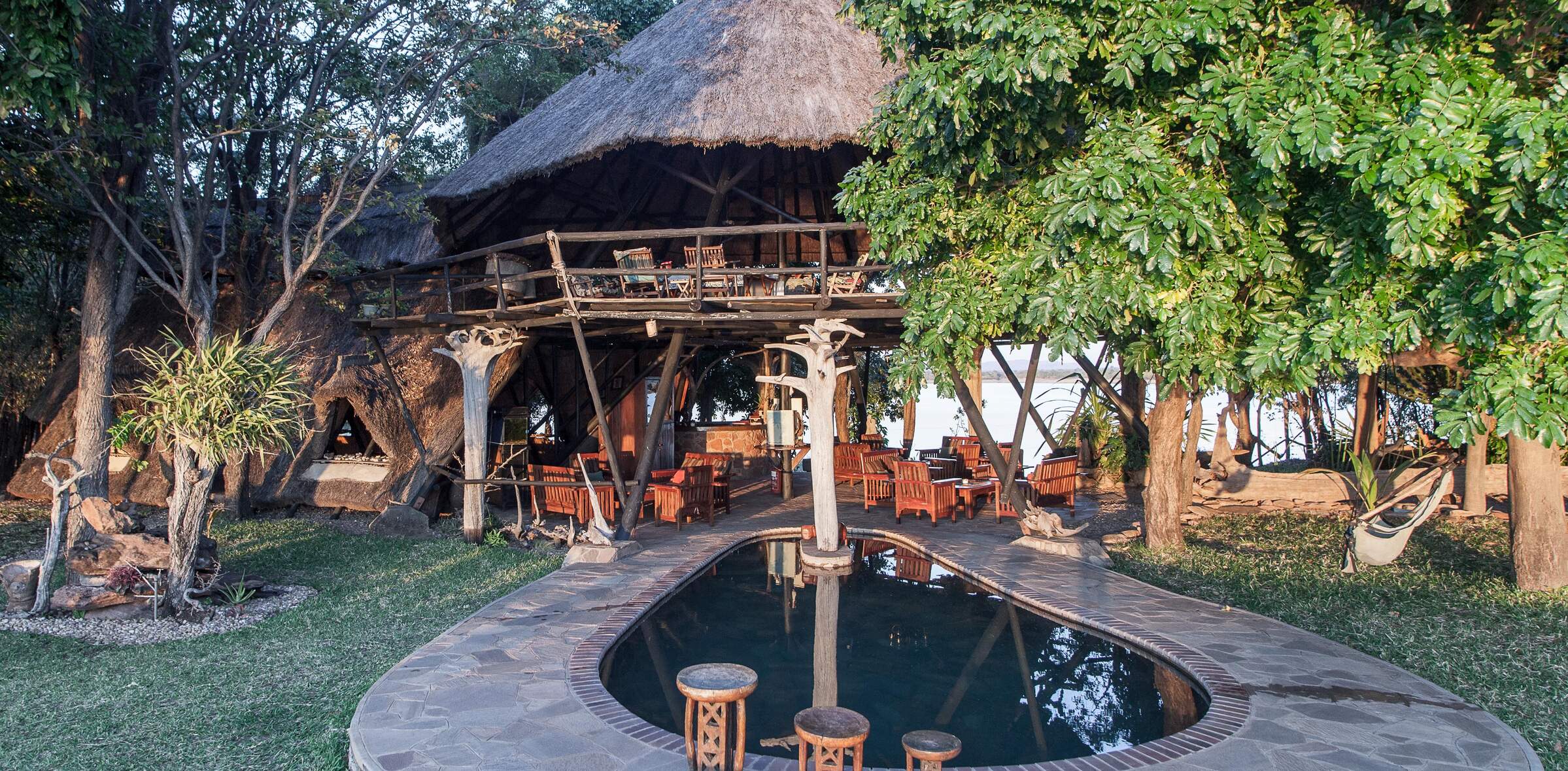
Musango Safari Camp
Set on an island in Lake Kariba, Musango Safari Camp is owned and run by Steve Edwards, a guide of note and an authority on the local area and its wildlife.
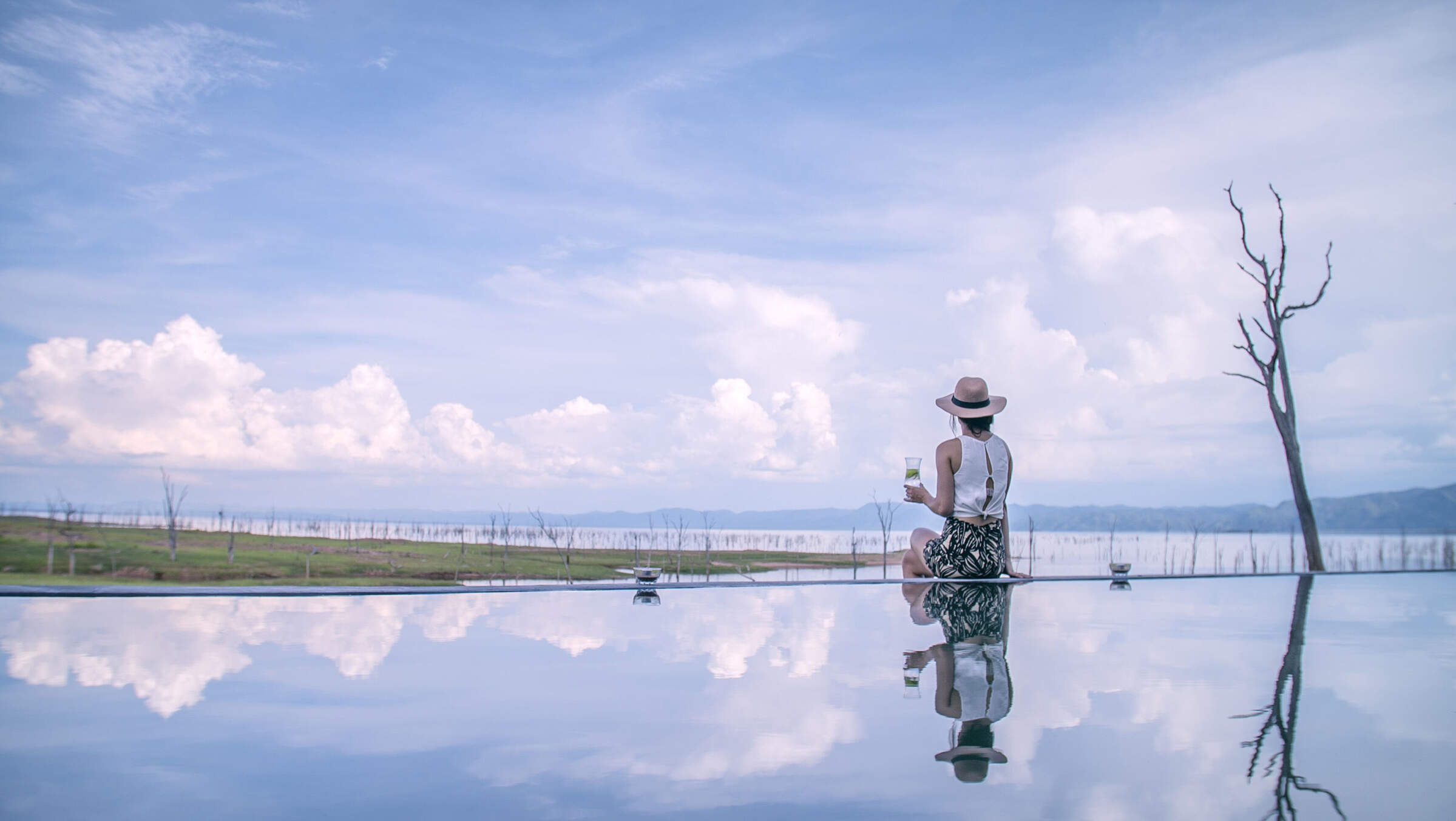
Changa Safari Camp
On Lake Kariba's southern shore the luxurious Changa Safari Lodge offers comfortable accommodation, great guiding & varied activities.
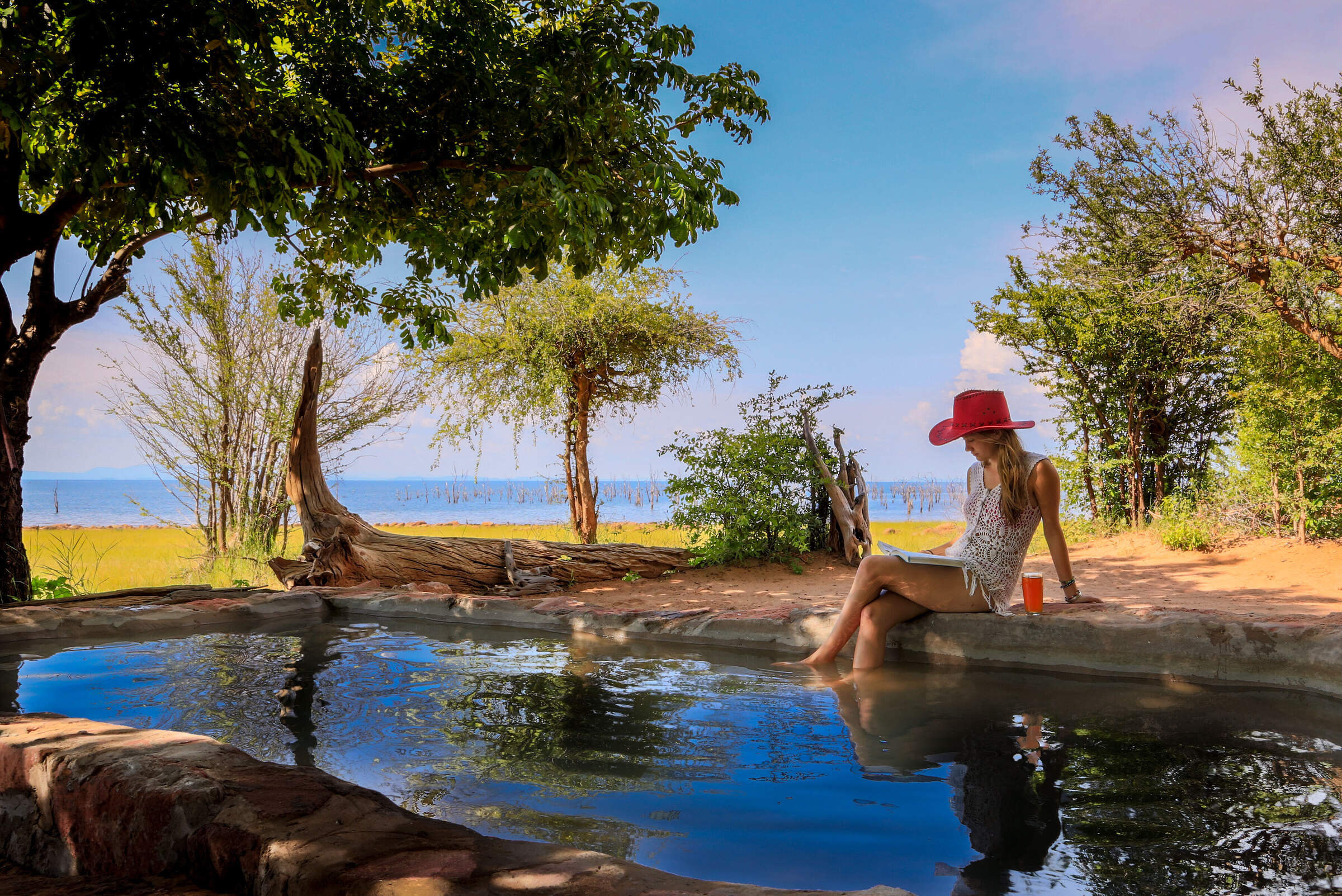
Rhino Safari Camp
Secluded on an island on the shores of Lake Kariba, the simple Rhino Safari Camp offers great guiding and a combination of water- and land-based activities.
When to go to Matusadona National Park
Our month by month guide: What it's like to visit Bumi Hills Safari Lodge in Matusadona National Park
Jan
Feb
Mar
Apr
May
Jun
Jul
Aug
Sep
Oct
Nov
Dec
Zimbabwe in January
January falls in the middle of Zimbabwe’s rainy season and is the wettest month of the year. Heavy rainfall occurs most days, flooding seasonal rivers and waterholes, with the occasional sunny spell.
With the high levels of precipitation the wildlife in the national parks becomes widely dispersed, taking advantage of the abundance of food and water, and is easily hidden by the thick, green bush.
While sightings of larger animals are possible, and many species drop their young at this time, game viewing is often sparse. However, many migratory species of bird arrive in Zimbabwe making it a peak month for birding.
The rains create incredibly sticky mud in Mana Pools National Park, preventing access and causing camps to close for the season. The majority of the camps in other parks remain open, with low rates attracting a smattering of visitors.
- Peak of the rainy season: hot & humid with heavy rain most days
- Bush exceptionally thick and green, with poor game viewing
- Species such as impala drop their young
- All camps in Mana Pools closed
- Very few visitors, and low rates at open camps
Our view
A time to avoid if possible
Weather in January
Zimbabwe in February
February remains well within Zimbabwe’s rainy season. Although total rainfall drops, relatively short thunderstorms can still be expected most afternoons. On the plus side, there is a greater chance of some sunshine in-between.
Much of the country remains waterlogged, closing access to Mana Pools and severely restricting walking safaris in other parks. While game drives and canoeing remain an option, the abundance of water disperses animals, and thick grass can make it difficult to spot larger species, but birding remains excellent. Conversely, this is a great time of year to view the landscape, and is excellent for photographers. Sporadic cloud cover and clear air can make for some spectacular sunsets too, particularly over Lake Kariba and the Zambezi River where the reflections off the water add to the beauty.
- Generally wet with frequent thunderstorms & hot humid days
- Poor wildlife viewing due to dispersed animals & thick bush
- Clear air, green landscapes & exceptional sunsets
- All camps in Mana Pools closed
- Very few visitors & low rates at camps that are open
Our view
This is not a great time to visit
Weather in February
Zimbabwe in March
March is the final month of Zimbabwe’s rainy season, when the rains start to trail off and sunny days become the norm. However, some days the clouds can still build, breaking into thunderstorms in the afternoon.
Mana Pools remains closed throughout the month but the majority of camps in Hwange, Matusadona and Gonarezhou remain open. Here, the landscape is green and alive, with migrant species of birds taking advantage of the abundant insect life. Larger animals remain elusive though, and walking safaris remain restricted.
By this time of year, the rains have normally trickled down to the Zambezi River and the flow of water over the Victoria Falls starts to increase, but without kicking up too much spray to obscure the views.
- Last month of the rainy season: hot, humid days with occasional storms
- Lush vegetation means good birding, but poor game viewing
- Views of the Victoria Falls improve
- All camps in Mana Pools closed
- Open camps have few visitors & low rates
Our view
This is not a great time to visit
Weather in March
Zimbabwe in April
April marks the end of Zimbabwe’s rainy season and the end of summer. Clear skies are the norm, with just the occasional shower. Temperatures start to drop, failing to reach 30ºC most days and dropping down to around 10ºC at night.
As the rain fades the landscape starts to dry out. While the vegetation remains thick and green, the soil in Mana Pools dries enough for camps to open, and the only camps to remain closed are the most remote bushcamps in Hwange. Although viewing of larger animals remains tricky, the improved weather starts to draw back visitors, as do prices significantly below those in the peak season.
The Zambezi River and flow of water over the Victoria Falls is at its highest, although large amounts of spray diminish views of the waterfall itself.
- Transitional period, with much lower rainfall & falling temperatures
- Wildlife is still dispersed & hard to see, but sightings improving
- Views of the Victoria Falls often obscured by spray
- Camps in Mana Pools open
- Visitors start to return & camps increase their rates
Our view
A good time to visit, with pros & cons
Weather in April
Zimbabwe in May
The first month in the dry season, May is also Zimbabwe’s first month of winter. If the rains are particularly late in a given year, you may catch the odd shower, but you can expect clear and sunny days the majority of the time. While it’s warm in the daytime, temperatures drop to single digits at night, so bring a warm jumper and gloves for early morning drives.
With the rain having cleared the air, the sky is bright blue, and it’s the best time of year for photography.
Even the most remote camps in Zimbabwe are now open. With the lack of rainfall, vegetation dies back significantly, and seasonal rivers return to sand. Not only does this open up the possibility of walking safaris, but wildlife viewing becomes much more reliable.
- Start of the dry season, with milder days and cold nights
- Game viewing significantly improves as vegetation dies back
- Vegetation starts to turn from green to brown
- Best time for photography with crystal clear air
- Visitors start to return; all camps open & rates increasing
Our view
A very good time to visit
Weather in May
Zimbabwe in June
During June you can virtually be guaranteed of dry and sunny days, although temperatures continue to drop, and can get close to freezing at night in Hwange National Park. Jumpers, jackets and gloves are strongly recommended for early mornings and evenings.
The opportunities for wildlife viewing improve throughout the month as the landscape rapidly dries, and the animals start to gather on the banks of the Zambezi River and around Hwange’s waterholes.
Water levels in the Zambezi River start to drop, reducing the amount of spray kicked up at the Victoria Falls and greatly improving visibility, but still allowing a full curtain of water to cascade over the edge.
- Middle of winter, with night-time temperatures close to freezing
- Game viewing significantly improves throughout the month
- Views of the Victoria Falls are at their best
- Noticeable increase in visitor numbers
- Camps considerably more expensive
Our view
A very good time to visit
Weather in June
Zimbabwe in July
July sits in the middle of Zimbabwe’s dry season. Although it’s warm at midday, temperatures are generally cold and in Hwange it’s been known to drop below freezing at night, with the lower-altitude Mana Pools feeling a bit warmer.
With wildlife clustering around the few remaining waterholes, sparse vegetation, and some of the best views of the Victoria Falls, this is one of the most popular times to travel, with camps charging peak season rates to reflect this. That said, visitor numbers to the country in general remain low, and outside of the Victoria Falls it’s rare for any areas to feel crowded.
- Middle of the dry season with almost no chance of rain
- Clear sunny days, but very cold nights
- Wildlife viewing good; game drives and walking safaris unrestricted
- Views of the Victoria Falls at their best
- Camps charging peak season rates
Our view
A very good time to visit
Weather in July
Zimbabwe in August
While August is the end of winter and temperatures are starting to creep up, mornings and nights are still cold, and game drives in open vehicles can feel particularly chilly. Well into the dry season, the landscapes will have mostly transformed from green to brown and wildlife viewing in Zimbabwe’s national parks is approaching its best. Due to dust kicked up into the atmosphere and smoke from bush fires you may start to notice a haze on the horizon, but this doesn’t significantly impact photography.
August is one of the most expensive months, and the pleasant weather and decent game viewing attracts lots of visitors. While the national parks rarely feel crowded, Victoria Falls accommodation can sell out a year in advance.
- Warm, sunny days but cold mornings & nights; almost no chance of rain
- Wildlife viewing nearly at its best
- Landscape turns brown, & an atmospheric haze develops
- All camps charging peak season rates
Our view
Fantastic: the very best time to visit
Weather in August
Zimbabwe in September
Temperatures in September rarely drop below 15ºC, but are yet to reach the oppressive highs of summer. It will normally have been five months since the last drop of rain, so antelope and elephants cluster around whatever water remains, with predators never too far away.
The landscape is very brown, and the haze building on the horizon takes some of the colour out of the sky, so while animal subjects are plentiful, the background is not ideal for photography.
The combination of incredible wildlife viewing, hot and sunny weather, and cheaper flights outside of the school holidays make this the most popular time of year to travel, and availability at the camps can become limited up to a year in advance.
- The best month for weather, with a pleasantly warm temperature range
- One of the best months for game viewing
- Victoria Falls starting to dry but still impressive on Zimbabwean side
- All camps are charging peak season rates
- Most popular time to travel, & space can be limited
Our view
Fantastic: the very best time to visit
Weather in September
Zimbabwe in October
October is the last month of the dry season with little chance of rain but building humidity. While the higher elevation of Hwange National Park limits temperatures to the 30s Celsius, they can easily top 40ºC in Mana Pools.
With little vegetation or water, wildlife is drawn to the few remaining water sources and viewing is at its best; visitors who brave the heat can be rewarded with some exceptional sightings, although haze in the air diminishes photos. Maximum visibility and dense wildlife concentrations can also make for very rewarding walking safaris, although the heat can make them uncomfortable.
Water levels in the Zambezi at the Victoria Falls drop significantly, and large stretches of the waterfall are a dry cliff-face – although it never dries completely. Camp rates remain at their peak, but visitor numbers drop as people avoid the heat.
- Last month of the dry season; very hot with building humidity
- Wildlife viewing at its very best
- Dust & smoke in the air diminish photographic opportunities
- Victoria Falls starting to look very dry
- Camp rates remain at their peak
Our view
A very good time to visit
Weather in October
Zimbabwe in November
November is a transitionary period, with high temperatures and humidity. While they can’t be predicted with any precision, the first rains normally arrive halfway through the month, in the form of thunderstorms lasting a few hours each day.
Early November is a popular time to travel as the camps drop their rates, so if you’re lucky you can get peak-season game viewing at low-season rates. This is a gamble though as if the rains do arrive, animals are no longer limited to a few dangerous waterholes and will disperse into the bush. While all the camps in Mana Pools intend to remain open, the rains can make the airstrips unusable so you may find yourself moved to a different park, a risk that increases through the month.
- Typically the start of the rains in Zimbabwe
- Temperatures & humidity levels remain high
- Wildlife viewing rapidly diminishes as the rains arrive
- Camps remain open, but risk early closure in Mana Pools
- Much cheaper time to travel as camps drop their rates
Our view
A good time to visit, with pros & cons
Weather in November
Zimbabwe in December
By December the rainy season has begun in earnest; this is one of the wettest months in Zimbabwe, with heavy thunderstorms most afternoons and occasionally continuous rain for a couple of days. While temperatures start to cool down the high levels of humidity can make the heat feel more oppressive.
With the rains comes an explosion of green growth, and the dust and smoke are washed out of the air. The resulting scenery – with the occasional bright blue skies – can be fantastic for photographers. Thick vegetation and plentiful water makes viewing of larger animals tricky, but with migratory species arriving the birding is at its best.
All camps in Mana Pools and the remote Hwange camps close, with those remaining open charging their lowest rates.
- One of the wettest months in Zimbabwe
- High temperatures & levels of humidity
- Wildlife viewing poor, but birding good
- Lush green landscapes & clear air; great for landscape photography
- All camps in Mana Pools closed
Our view
This is not a great time to visit
Weather in December

Looking for inspiration on where to travel next?
Visit our trip chooser to explore your options and find inspiration for your perfect African adventure
Inspire me